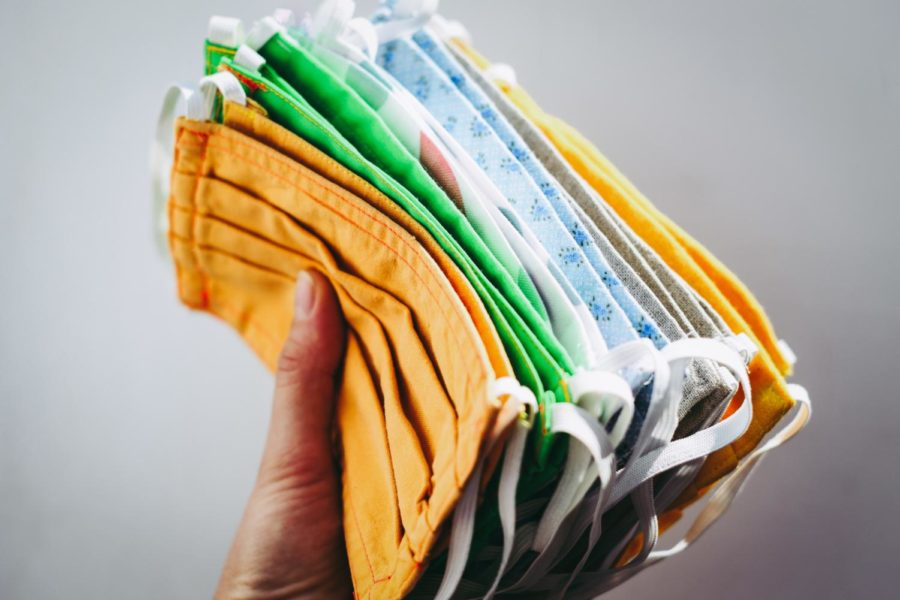Bekkerus: Wear a mask, save a life
August 21, 2021
In a time when we need leadership more than ever, Gov. Kim Reynolds has let us down yet again by prohibiting face mask mandates in schools. Her dangerous lack of regard for public health and safety will cost us our children, our family members, our educators and our communities.
In an interview with KCRG-TV9′s Beth Malicki, Reynolds said there is inconclusive evidence regarding the efficacy of masks, claiming wearing a mask is an option for families to decide on for their own kids.
Firstly, Reynolds says she “has not seen the data” that says masks work in schools. Not only is it there, but it’s not hard to find. One study in North Carolina found that wearing masks in schools prevented the spread of coronavirus, even without social distancing. A review from the U.S. Proceedings of the National Academy of Sciences (PNAS) compiled and analyzed studies that show how wearing a mask prevents the spread of disease through droplets (source control) and how it can protect the wearer (personal protective equipment).
There are so many more resources just a Google search away. Even the Centers for Disease Control and Prevention recommends all students and staff, vaccinated or not, wear masks. And with the delta variant spreading so quickly, we need masks now more than ever. So why exactly did Reynolds make the decision she did?
“Oh, listen I’m not a scientist, so I have to take, I have to do the best that I can do with the information that I received, but really what I think I need to do is, I don’t know. I don’t know what’s going on in your family,” Reynolds said in the interview.
Reynolds believes families should be making the decision for their children on whether or not students will be masking in schools. Personal responsibility has been an all-too-familiar theme during the pandemic. It’s been stressed by Reynolds and other leaders as well. However, we’ve seen time and time again that personal responsibility is something on which we cannot solely rely, making personal freedoms difficult to guarantee.
Because of COVID-19’s high transmission rate, personal freedoms subside to make way for public safety. Public safety taking precedence is not a new concept; it’s why we stand in TSA lines at the airport and why we don’t yell “fire” in a crowded theater. In fact, the idea of precautionary principle has been around for decades.
According to the United Nations Educational, Scientific and Cultural Organization, “When human activities may lead to morally unacceptable harm that is scientifically plausible but uncertain, actions shall be taken to avoid or diminish that harm.”
The definition also clarifies what harm is considered to be “morally unacceptable.”
“Morally unacceptable harm refers to harm to humans or the environment that is threatening to human life or health, or serious and effectively irreversible, or inequitable to present or future generations, or imposed without adequate consideration of the human rights of those affected.”
The pandemic took to this clarification like a checklist. We need to diminish this harm, and masking is within that realm.
Reynolds and others stress the importance of personal choice when it comes to masks, but with COVID-19, there are no morally sound alternatives to be made: you either protect others with, at most, a minor inconvenience, or you choose selfishness.
The issue with personal responsibility is that when masks are not enforced and not everyone is wearing one, they cannot fulfill their entire purpose. Masks require source control in order to improve efficacy.
“[Source control’s] effect occurs to other individuals in the population, not the individual who implements the intervention by wearing a mask,” according to PNAS. In public, masks are important to protect those around you who could be high-risk or those who are in contact with a high-risk person. Sure, wearing a mask is about protection, but one of its purposes is about protecting your neighbor. It’s about empathy.
So when Reynolds leaves masks as an option to each individual, we are not reducing public harm. We are not showing compassion and kindness. We are not being good citizens or protecting our communities. What we think is helping our students and families is actually hurting them, as each loved one becomes just another statistic in a seemingly never-ending horror story.
Why aren’t we listening to science? Where is our consideration for others? Why is a small sacrifice to protect others so polarizing? These questions may not be answerable, but this question is: What can we do to protect ourselves and others? Get vaccinated, and wear a mask.







